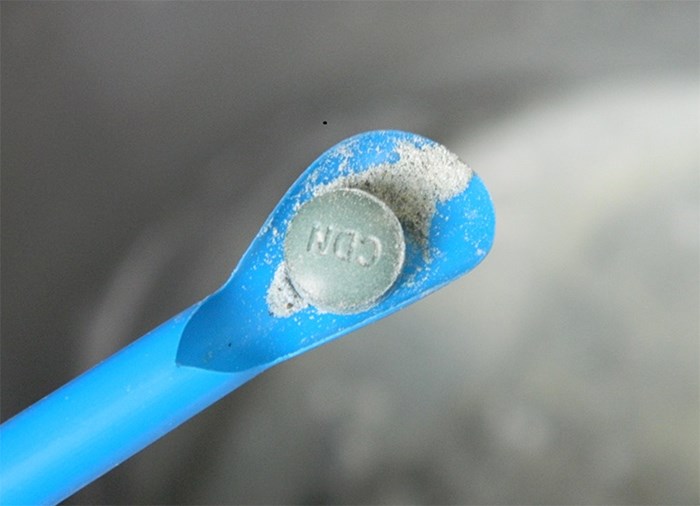This week it was announced that there were 128 overdose deaths in BC in November, breaking the previous record for overdoses in a single month - 82 in January. This is insane.
The media in Vancouver has been doing an amazing job of covering the fentanyl crisis, keeping it in the public eye. You've likely read the (necessary) horror stories and the explainers, like this piece from Nick Eagland at the Province or this one from Travis Lupick at the Straight. Pop-up safe injection sites have been crucial in saving lives, manned by an army of incredible volunteers and, more recently, a few "overdose prevention sites" were opened by the provincial government. Talk radio in Vancouver has been chock full of experts lately speaking with increasing urgency about different solutions to the crisis, but there isn't a silver bullet and the speed at which government agencies are able to move clearly isn't fast enough to keep up. We can talk all day and plan for the future but the reality is that this is an acute crisis - like an earthquake or a tsunami - and people need help right now.
 Fentanyl. Photo courtesy RCMP
Fentanyl. Photo courtesy RCMP
There are a couple of local studies and pilot programs (NAOMI and SALOME) which have led to a limited amount of prescription heroin becoming available. Addicts who don't respond to methadone or other treatment are essentially prescribed and dosed with heroin, with the hope of taking away street level crime and risk associated with people getting the money they need to use, while giving them a predictable and safe amount to use - fentanyl free of course.
While programs like this are a fantastic step forward to better harm reduction programs (and less deaths) the reality is that the problem needs a drastic fix, like yesterday. People are dying as you read this, and as far as I know there are no statistics saying more people are using drugs; it's fentanyl (and carfentanil) that's being cut into them that's killing people.
Last week the Province published a cover story written by Wayne Moriarty in which he argued that the conversation about sobriety has taken a back seat to harm reduction, and that the best way to not die from fentanyl is to not do heroin and be exposed to it. His opinion piece resonated so much that he wrote a followup, and I don't doubt he added fuel to the fire at city hall - the mayor and police chief held a press conference the next day stressing the need for more treatment options to get people off heroin. I have a ton of respect for Wayne, and I actually agree with his opinion, but I'd like to offer another plank. Yes we should focus heavily on helping people get off of drugs but in the meantime how about we offer those on them with a temporary solution so they don't die this week?
The line of reasoning I'm about to share came about a couple days back when I noticed that Jodie Emery was on Twitter, bemoaning the fact that the local government in Montreal was shutting down the 8 new marijuana dispensaries that she and her partner, Marc Emery, opened there under their Cannabis Culture banner. These are illegal stores, but her position seemed to be that they had done "brave" work in helping legalize marijuana (not quite yet), and that the government was doing them "harm" by shutting them out and not allowing them to capitalize on the legal market that they helped create. They've always ran a business in tandem with their crusade to end prohibition, in fact Marc went to jail in the states for selling seeds - a profitable venture to be certain, but it drew a major amount of attention to the issue. However now that legalization is about to happen, and it looks like they might not be able to jump the line to profit, their activism runs the risk of getting tipped on the scale more towards capitalism. As a business owner and an entrepreneur I understand their position, but when it comes to the most noble of marijuana ventures it's the non-profit compassion clubs that are truly doing the heroic work these days. They exist solely with the intention of alleviating people's pain, simply to help solve a health issue. Why can't that exist with heroin by a private entity?
The laws are only changing because of our brave, relentless activism - and now they want to punish & exclude us? @BobKronbauer @DenisCoderre
— Jodie Emery (@JodieEmery) December 16, 2016
I look at non-profit pot compassion clubs and have got to think that there are some folks out there who would be willing to put their own freedom at risk to save hundreds of lives. While we wait years for a federal program to come into place that prescribes heroin widely, and other levels of government work diligently to solve the problem, could someone not open up a network of heroin dispensaries in the Downtown Eastside, offering (selling) 100% pure heroin to users? This would nearly guarantee (nearly - people obviously still die from heroin overdoses) way less people would die from overdoses. Surely there are some compassionate lawyers in town who would represent the people who opened these dispensaries in court as they would have some major legal hurdles along the way.
As Wayne pointed out in the Province, the only thing that's going to stop people from dying is making sure they're not standing in front of the freight train that is fentanyl. It took a ton of activism on the part of people to finally get marijuana nearly legalized in our country, and our streets are littered with half-legal, for-profit marijuana stores (and a few true compassion clubs). So why not heroin if it's entirely not for profit and saves a few hundred lives?


